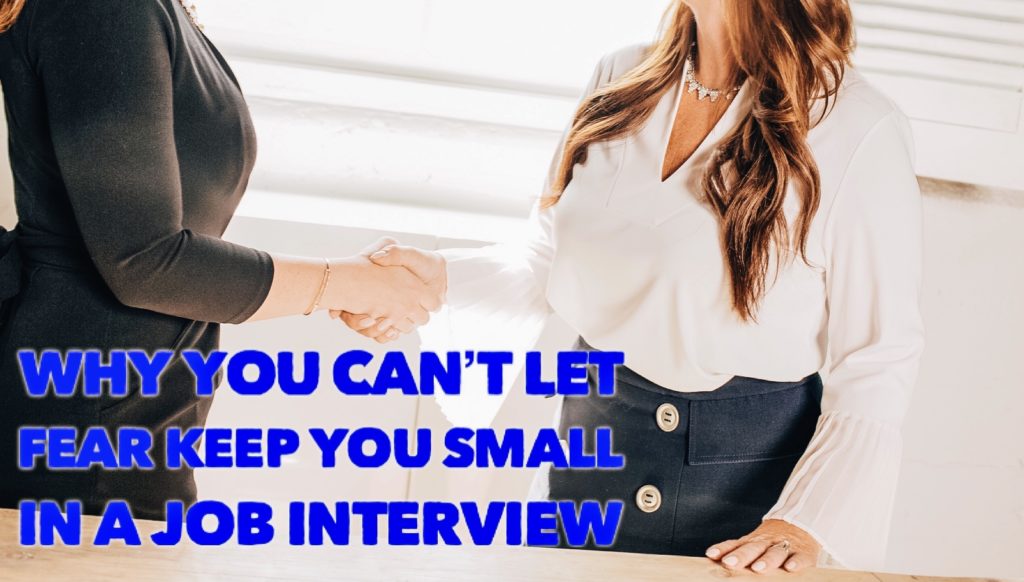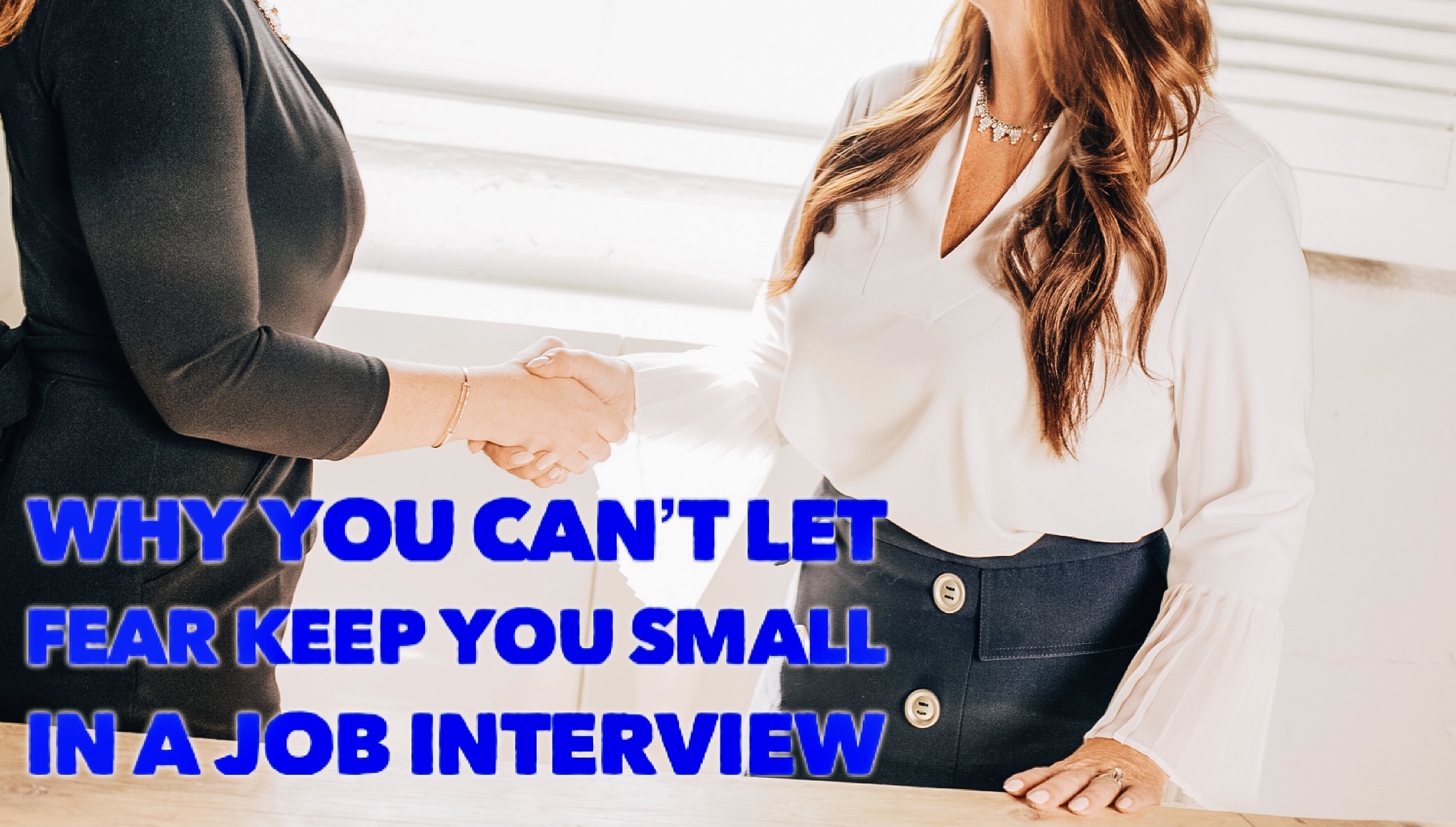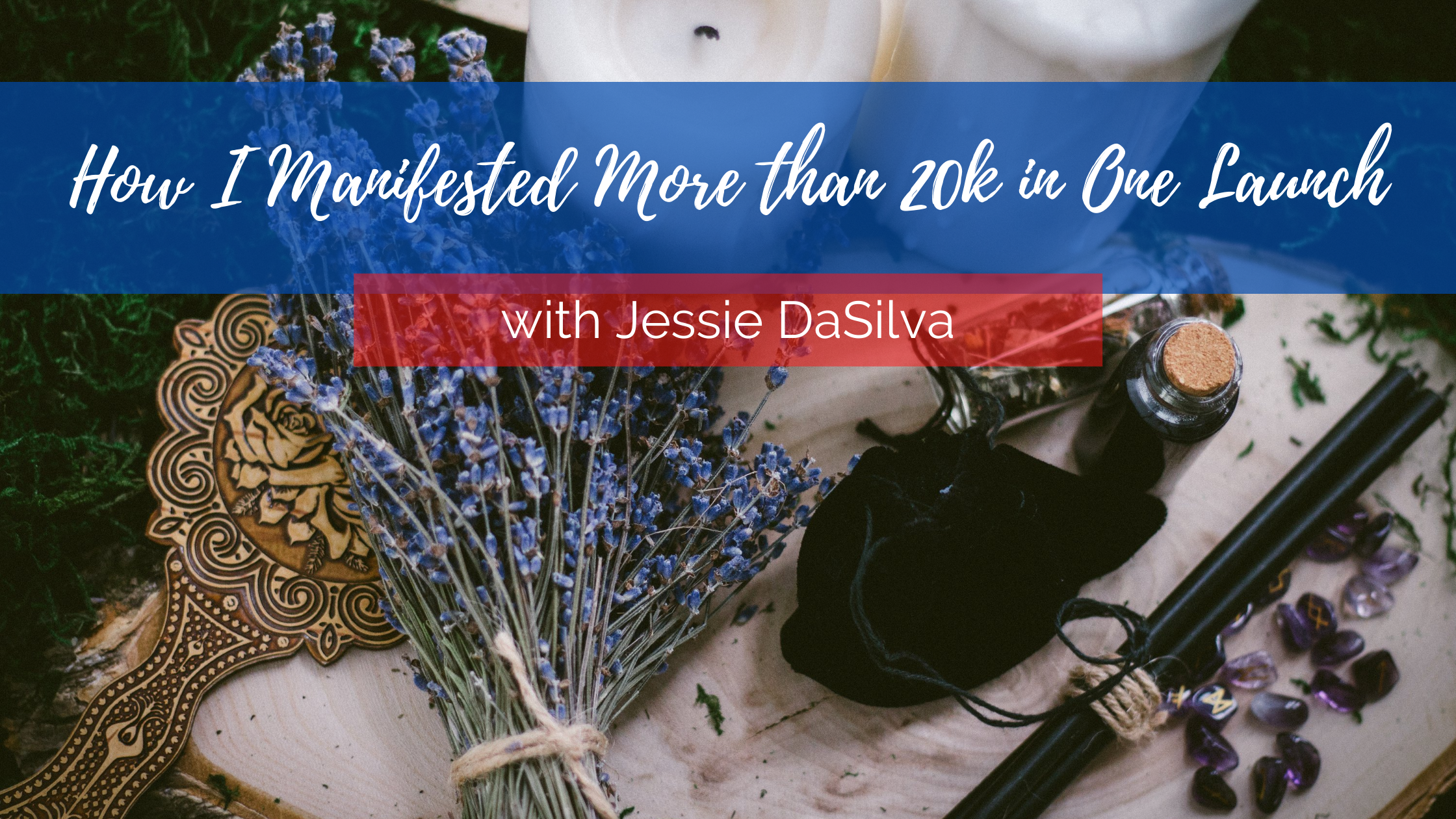
When Natalie* came to me, she had been doing contract legal work for about a year. It was far, far removed from the goals she set for herself when graduating law school. Because of that, her circumstances had given her self-esteem a walloping. But never fear! Hers is a happy story on why you can’t let fear keep you small in a job interview.
I knew she was more than capable, but she now lived in a place of doubt. Ultimately, however, her story demonstrates how it’s important to act through doubt and fear when interviewing for jobs.
When she finally heard back from a job she had applied to months ago, she used it as an opportunity to screen her potential employer and followed her intuition to ask questions that would make most job candidates feel impolite.
Staying Positive
Natalie yearned for either a public interest job that could still pay the bills or a big-law job that would encourage the hours of volunteer legal work she did every month on behalf of the homeless. Once she started landing interviews, I made sure she understood how important it would be to maintain selectivity.
Job hunting can be a demoralizing process, especially when you’re in a job that’s crushing any sense of accomplishment or self-worth you may have had before. Natalie took a risk in leaving a small firm to move across the country and when all she managed to find was contract work for a year, well, she wasn’t feeling like an impressive candidate.
That kind of mindfuck puts a job seeker into desperation mode—they become so focused on getting out that they abandon any sense of discernment as to whether the next position is a good fit for them. Instead, the only requirement becomes “Not what I’m doing now.”
Therein lies the trap–and exactly why you can’t let fear keep you small in a job interview.
Guessing Your Value
Everyone is looking to save a buck and potential employers are no different. Why else don’t they list salary ranges on open positions? They’re banking on candidates accepting less than what they’re worth.
When job seekers are in the position to guess a potential salary and they’re jonesing to leave their current role, it creates a perfect storm for low-balling themselves in the hopes of getting the job.
That’s why I always tell clients to ask questions and trust their guts in job interviews. (I also tell them to never give the first number in salary negotiations, but that’s another topic for another article.)
Yes, you need to ask the tough questions even if you’re afraid you won’t make it past that interview round. Yes, even if it didn’t come up naturally. Yes, even if you feel rude or out of line.
That’s what practice is for, after all. I went through those hypotheticals with Natalie so by the time she landed a job interview at a local nonprofit, she was prepared for the task ahead. Her mantra became, “I can’t keep myself small in this job interview.”
Asking Intrusive Questions
After our work together, Natalie knew the worth she could bring to that organization. The interview lasted for two hours with both interviewers speaking to her with flow and ease. They also mentioned she received glowing reviews from her references.
She could tell they were keen to move ahead with her, but she had some questions on her mind:
- What’s the salary range for the position?
- Do you offer raises?
- Why is this position open?
- Where did the previous person go?
- How many people are you interviewing?
- Who else have you hired? (They mentioned they were hiring four attorneys.)
- What would an applicant need to receive increased pay beyond the range?
These were the answers she wound up getting, respectively:
- In the $60,000s—$65,000, which was about $20,000 less than what Natalie was looking to make.
- The budget is pretty fixed, so they couldn’t give merit raises.
- Four people, who had all worked there five to six years, left in six months. They were all friends, but they also wanted more opportunity for growth. “There’s no bad blood!” she kept saying.
- One person went to a law firm, but three of the four went to other nonprofits for higher titles and salaries.
- Two more candidates were being interviewed.
- They hired two brand-new graduates and one who clerked for a judge, but had no experience with direct client representation. Natalie was four years out of law school, but had a lot of similar experience and little need for training or extended supervision.
- For someone to make above the range, they would need significant experience doing this exact work in this exact jurisdiction for many years, plus personal contacts at other nonprofits. Despite that describing Natalie’s experience, they held her to a lower range due to the fact that she was four years out of graduating law school.
Are you starting to see why you can’t let fear keep you small in a job interview?
Undermining Experience When Convenient
After the interview, we discussed those answers and why a number of them felt like red flags. Natalie admitted she felt like her questions were intrusive, but she was glad she asked them. She got a ton of insight into the organization that she would never have otherwise known.
What alarmed her the most wasn’t the salary, which would have been a lateral financial move for her, but the lack of growth.
“They were so open about never giving raises or promotions and that four people left because of that,” she told me. “I was shocked.”
Not every employer would be that open, of course, but admitting the high turnover alone would have signaled to some degree of lack, at best, and mismanagement, at worst.
She was also shocked at how quickly they seemed to devalue her. During the entire interview, they talked about what an asset she could be and how lucky it was that she had so much relevant experience—far more than most applicants had.
“The second I asked about the salary in regard to my worth, they discounted my experience,” she said.
Natalie didn’t like how fickle they were over her value as a potential employee and said it felt too similar to the small firm she left after three years of feeling unappreciated. But she didn’t let that stop her.
“I remembered what you told me,” she said. “You can’t let fear keep you small in a job interview.”
So, even though she aced the interview and felt confident about the offer, she didn’t feel confident that she would accept.
Doing the Research
For those looking for nonprofit jobs, there’s always the guilt in negotiating salaries because what applicants want is to make a difference in the world. There’s a feeling that if they truly cared, they wouldn’t do it for money, but out of the goodness of their hearts.
However, some nonprofits use that perception and guilt to keep prospective hires from pushing back.
Natalie was no different. So, I advised her to do a little investigating.
Nonprofits’ tax forms and government salaries are all public record, which means any prospective employee can look them up. When Natalie found the organization’s 990 form, she was shocked to see the salaries of the people interviewing her were six figures.
Not just that, but double what the range of the position for which she interviewed.
For Natalie, it revealed a huge disconnect between the two levels of employees at the organization. Management received twice the income of lower-level workers, who also had no way of changing their income.
Finally, she checked Glassdoor.com to see if anyone had left a review of working for the organization.
She found a single review with the title “Terrible.” Under the cons, it said, “Focus is on keeping funding, not providing meaningful services to clients.”
It had been posted a month before her interview. She was almost relieved when she saw it. It confirmed why she couldn’t let fear keep her small in that job interview.
Walking Away
Natalie wasn’t surprised when they offered her the job, but she was surprised that they offered her $64,000—$1,000 lower than they told her in the interview. She asked if they could come up and they quoted her the original amount.
After a day to think about it, she decided the pay and the red flags weren’t worth compromising on her financial goals and after our work together, she knew she was worth more than both the salary and their estimation of her value. I agree.
Rather than settling for any job, she chose to look for the right job.
When she turned them down, she was transparent that while it was really hard for her to come to the decision, she couldn’t take the job for what they were offering because she needed to lookout for her financial future. The interviewer immediately changed her tone from professional to rude and snappy.
“That’s why I told you the salary when I invited you to interview,” the interviewer said.
“You gave me a $10,000 range. I obviously thought with my experience, I would be near the higher end,” Natalie said, staying as polite and calm as possible.
“I said it was approximately $65,000,” the interviewer said.
“Right. And then you came at me with a number that was $1,000 lower than what you quoted,” Natalie said, now feeling awkward. “I do appreciate the offer and I think the organization and the work you do are incredible. This was a difficult decision for me to make, but I need to look out for myself.”
“Well, thanks for the call,” the interviewer said before she hung up on Natalie.
Trusting Your Gut
In the end, Natalie’s intuition was spot on. As I told her, interviews and offers are like first dates. If this is how they treat you when you express your boundaries now, just imagine how much worse it will get once they’re comfortable with you.
How potential employers react to salary negotiations is about how they’ll respond to requesting a raise down the line. It’s critical to ask those intrusive questions and negotiate because it shows you the degree of respect you can expect down the line.
The truth is that job hunters tend to put employers on a pedestal, thinking of them as gods who decide whether they are worthy of an income. That just isn’t true. You’re worthy and deserve fair pay.
Employers bank on job seekers—especially women, those with fewer years of experience, and new graduates—having low self-worth because it means they can get a qualified employee at a discount.
Don’t let that happen to you. Be confident. Ask the questions. And walk away if it’s not a 100 percent fit for your needs.
And I’ll say it one more time for emphasis: This is why you can’t let fear keep you small in a job interview!
If you’re looking for a job, consider my group program, Curate Your Career: 90 Days to Your Dream Job! Early bird pricing available through February 18, 2020, 11:59 p.m.
*Name was changed to protect client privacy.











0 Comments
Trackbacks/Pingbacks